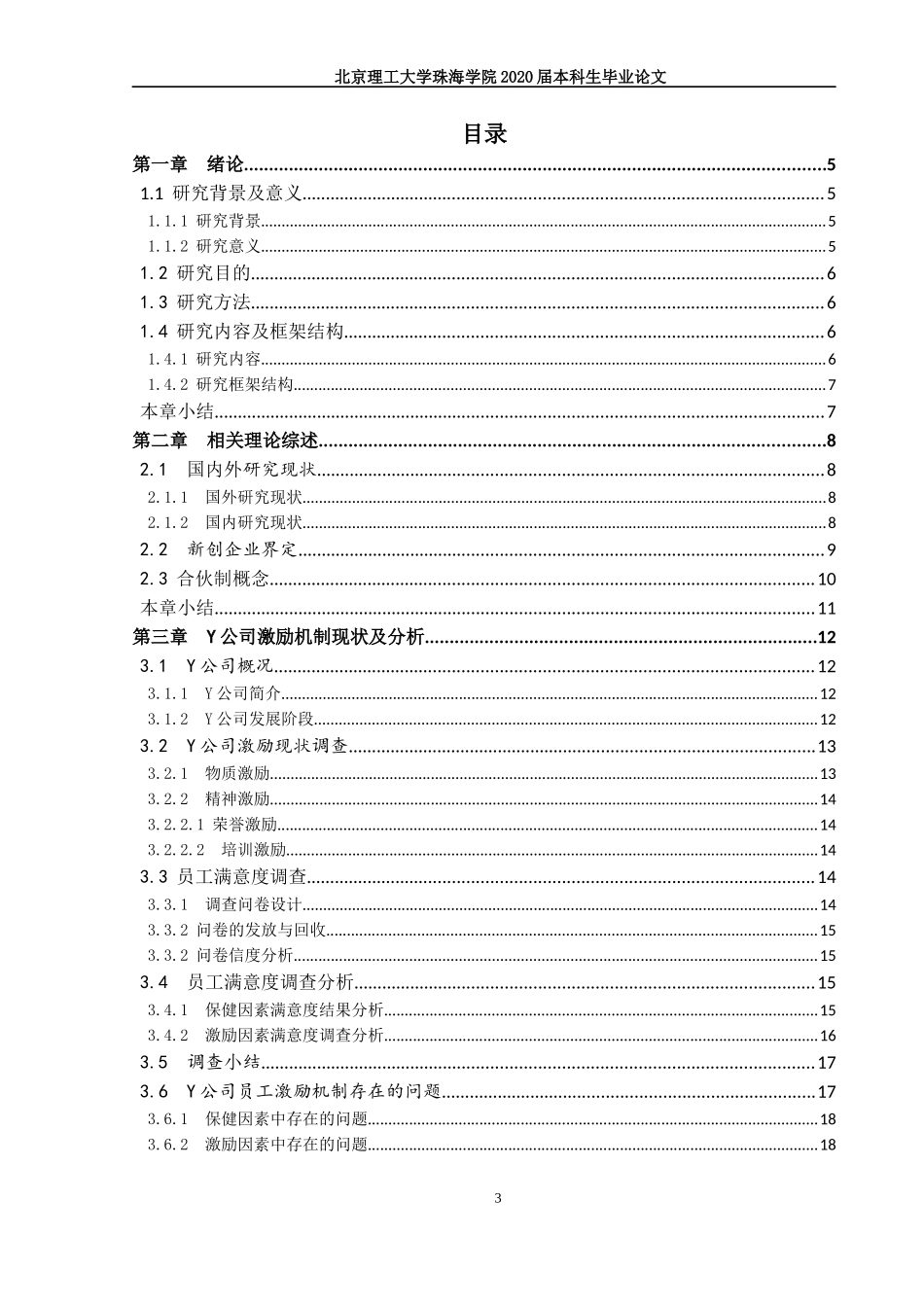北京理工大学珠海学院 2020 届本科生毕业论文 合伙人背景下的新创企业激励机制研究摘 要在企业所有权和经营权的分离前提下,为了避免职业经理人内部控制现象的产生,通过合伙人制度,变雇佣关系为合资、合作关系,把职业经理人的动机就从自身利益的获取转变为与企业总体利益相结合,对其起到激励与约束作用。而从无到有的新创企业,由于缺乏资金、经验、人才等各种资源,会采用合伙人制度在短时间凝聚资金和人才,通过利益共享、风险分担对员工的激励与约束作用。但即使拥有合伙人制度,很多新创企业在运营过程中因为一些小小的矛盾冲突而导致散伙的情况出现。新创企业能否顺利发展,人的因素占据主要作用,所以研究新创企业的激励机制具有重要价值。本文以赫茨伯格双因素理论为借鉴基础,对 Y 驾驶员培训公司合伙人的激励因素和保健因素满意度进行了调查和分析,了解 Y 公司激励机制现状,对激励机制中的问题,结合双因素理论与公司实际提出加强激励因素,弱化保健因素的改善方案,使其激励制度更完善,对 Y 公司的发展有所帮助,同时也为合伙人制的新创企业的激励机制优化提供参考。关键词:合伙人制度;新创企业;激励机制;成功分享计划;1北京理工大学珠海学院 2020 届本科生毕业论文AbstractUnder the premise of the separation of ownership and management right, in order to avoid the phenomenon of internal control of professional managers, through the partner system, the employment relationship is changed into a joint venture and cooperative relationship, and the motivation of professional managers is changed from the acquisition of their own interests to the combination of the overall interests of the enterprise, which plays an incentive and restraint role. And the new enterprise from scratch, because of the lack of funds, experience, talent and other resources, will use the partnership system in a short period of time to gather funds and talent, through the benefit sharing, risk sharing to the staff incentive and restraint role. But even with a partner system, many startups operate because A few minor conflicts...


